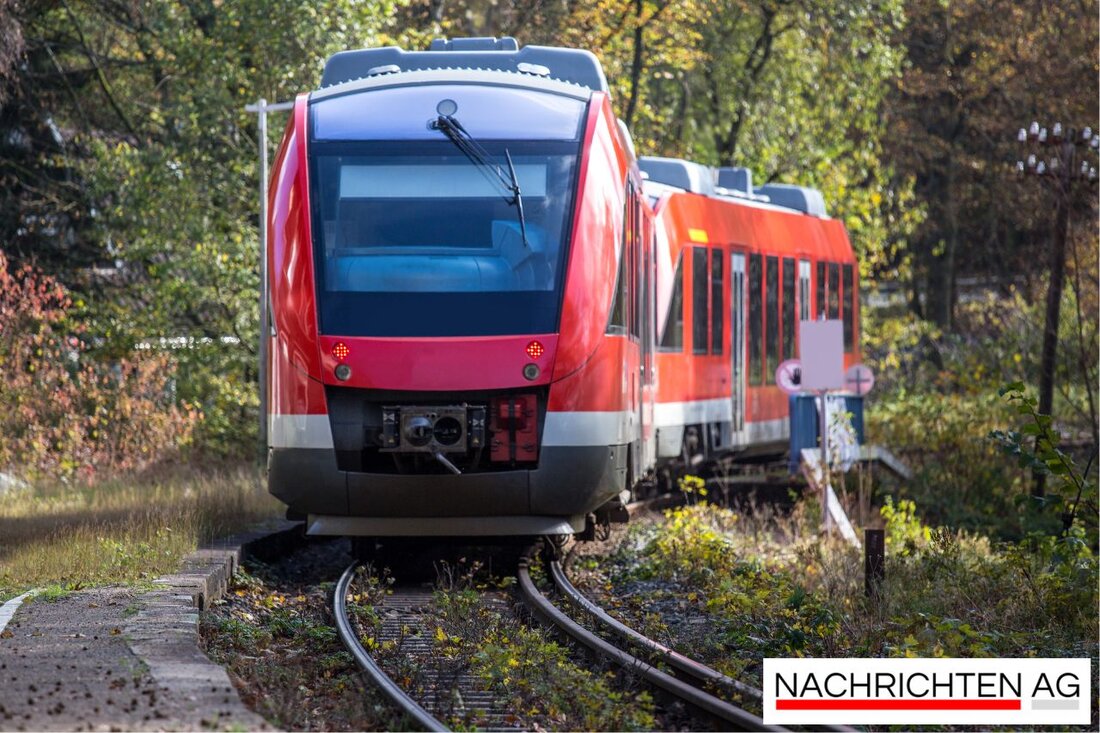Mother struggles in a crowded ICE train: Deutsche Bahn is criticized!
An incident with a mother and her children on the ICE is sparking discussions about the child-friendliness of Deutsche Bahn in 2025.

Mother struggles in a crowded ICE train: Deutsche Bahn is criticized!
On May 11, 2025, a mother and her three children had to stand in the aisle for hours on a crowded ICE train, which was an unforgettable experience not only for her, but also for hundreds of other passengers. Giti K. expressed her displeasure with Deutsche Bahn on LinkedIn and described the dramatic situation during her trip from Munich to Cologne, which was actually supposed to be relaxed. “I could cry with rage,” she wrote after being caught in a train of chaos despite regular bookings with flex tickets and no reservations. The connection was preceded by a delay, so she was forced to change to a crowded ICE train. In the family section where she was hoping to find a seat, there were childless passengers, causing her daughter to cry from exhaustion and the children to stand in the aisle.
Unfortunately, the train staff were not very helpful. A DB conductor not only instructed Giti K. not to alert other passengers to the situation, but also insinuated that she was inciting her daughter against him. The mother felt that she was being treated unfairly and suspected that her migration background played a role in the treatment. However, Deutsche Bahn stated that the seats in the family area are not priority seats and that only families can be accommodated in the toddler area. Reservations are also recommended, but not absolutely necessary. In the event of a conflict, the train crew is not even obliged to ask passengers to stand up, but should provide support.
A broad field: child-friendliness in rail transport
In the discussion about more child-friendly trains, Giti K.'s incident is not the first of its kind. The Greens in the Bundestag in particular criticize the insufficient number of family and small child compartments in Deutsche Bahn's long-distance trains. There are currently only 430 carriages with separate toddler compartments and only 182 carriages with family areas in closed compartments. On average, there are often no more than one or two toddler compartments and two to three family compartments available in an ICE train. This becomes particularly important if more passengers with children are to be attracted to the train. Sven-Christian Kindler, budget spokesman for the Greens, urgently calls for more space for strollers, play opportunities and fair prices for families in order to achieve the desired doubling of passenger numbers by 2030.
The figures for rail passenger transport speak for themselves: the share of this mode of transport in total traffic volume was only 10% in 2024, while the federal government is pursuing the goal of increasing the number of passengers in local public transport. Punctuality is the most important criterion for local transport passengers. Incidents like Giti K.'s also cast a distorted light on what is often viewed in Germany as child-unfriendly transport.
The path to a transport transition
Another aspect of the transport transition in Germany is the increased use of trains and buses in order to reduce emissions. The federal government is committed to reducing traffic fatalities and improving the quality of life in cities through more space for pedestrians and cyclists. The discussion about child-friendliness on trains will probably continue to gain momentum, especially given that more than 30% of working people will use local public transport to get to work in 2024. The Deutschlandticket, which has just been put into operation, is also seen by many as an incentive to make rail transport more attractive, but the question of child-friendliness remains an open chapter.
There is a consensus in the comments on Giti K.'s LinkedIn post: There is a lot of catching up to do in Germany when it comes to the lack of family friendliness at Deutsche Bahn. Suggestions such as the introduction of reservation requirements or emergency protocols for families have already been made. Hopefully, Deutsche Bahn will take the experiences seriously and contribute to improvement soon. Trains could perhaps continue to be popular as a child-friendly means of transport in the future.

 Suche
Suche
 Mein Konto
Mein Konto